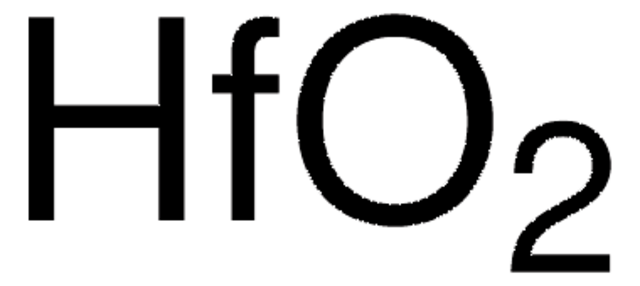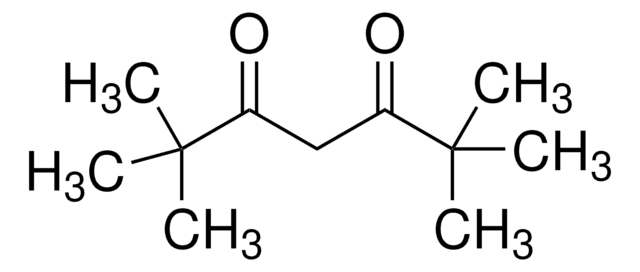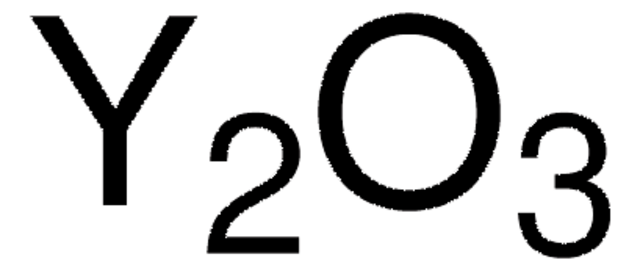204994
Zirconium(IV) oxide
99.99% trace metals basis (purity excludes ~2% HfO2)
Synonym(s):
Zirconia
Sign Into View Organizational & Contract Pricing
All Photos(1)
About This Item
Linear Formula:
ZrO2
CAS Number:
Molecular Weight:
123.22
EC Number:
MDL number:
UNSPSC Code:
12352303
PubChem Substance ID:
NACRES:
NA.23
Recommended Products
Assay
99.99% trace metals basis (purity excludes ~2% HfO2)
form
powder
reaction suitability
reagent type: catalyst
core: zirconium
bp
5000 °C (lit.)
mp
2700 °C (lit.)
density
5.89 g/mL at 25 °C (lit.)
application(s)
battery manufacturing
SMILES string
O=[Zr]=O
InChI
1S/2O.Zr
InChI key
MCMNRKCIXSYSNV-UHFFFAOYSA-N
Looking for similar products? Visit Product Comparison Guide
Related Categories
Storage Class Code
11 - Combustible Solids
WGK
nwg
Flash Point(F)
Not applicable
Flash Point(C)
Not applicable
Personal Protective Equipment
dust mask type N95 (US), Eyeshields, Gloves
Choose from one of the most recent versions:
Already Own This Product?
Find documentation for the products that you have recently purchased in the Document Library.
Zhongpu Zhang et al.
Acta biomaterialia, 9(9), 8394-8402 (2013-05-21)
Effective and reliable clinical uses of dental ceramics necessitate an insightful analysis of the fracture behaviour under critical conditions. To better understand failure characteristics of porcelain veneered to zirconia core ceramic structures, thermally induced cracking during the cooling phase of
D Stender et al.
Physical chemistry chemical physics : PCCP, 17(28), 18613-18620 (2015-06-30)
The crystallization kinetics of amorphous 3 and 8 mol% yttria stabilized zirconia (3YSZ and 8YSZ) thin films grown by pulsed laser deposition (PLD), spray pyrolysis and dc-magnetron sputtering are explored. The deposited films were heat treated up to 1000 °C
Linda Szabo et al.
Genome biology, 16, 126-126 (2015-06-17)
The pervasive expression of circular RNA is a recently discovered feature of gene expression in highly diverged eukaryotes, but the functions of most circular RNAs are still unknown. Computational methods to discover and quantify circular RNA are essential. Moreover, discovering
Mei-Chin Chen et al.
Acta biomaterialia, 13, 344-353 (2014-12-03)
We established near-infrared (NIR)-light-triggered transdermal delivery systems by encapsulating NIR absorbers, silica-coated lanthanum hexaboride (LaB6@SiO2) nanostructures and the cargo molecule to be released in biodegradable polycaprolactone (PCL) microneedles. Acting as a local heat source when exposed to an NIR laser
K Nakamura et al.
Journal of the mechanical behavior of biomedical materials, 47, 49-56 (2015-04-05)
The present study analyzed the kinetics of low-temperature degradation (LTD) in zirconia, and evaluated the influence of LTD and cyclic loading on the fracture resistance of monolithic zirconia molar crowns. Bar-shaped zirconia specimens were divided into nine groups and autoclaved
Our team of scientists has experience in all areas of research including Life Science, Material Science, Chemical Synthesis, Chromatography, Analytical and many others.
Contact Technical Service



